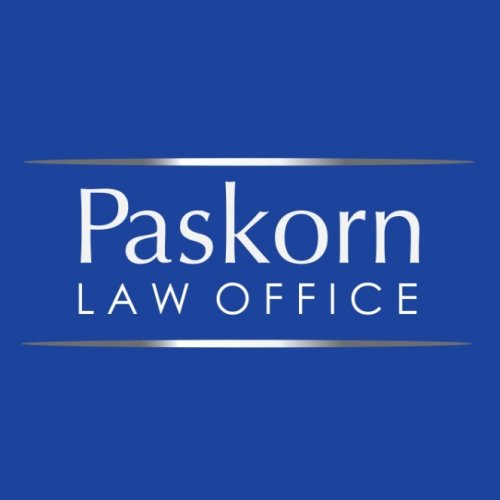Best Education Law Lawyers in Phuket
Share your needs with us, get contacted by law firms.
Free. Takes 2 min.
List of the best lawyers in Phuket, Thailand
About Education Law in Phuket, Thailand
Education Law in Phuket, Thailand, governs the rights, responsibilities, and standards within educational institutions, ensuring compliance with national regulations. It includes policies on school governance, student rights, teacher qualifications, and educational standards. As an integral part of Thailand's legal framework, Education Law aims to uphold quality education across public and private schools in Phuket, reflecting the national education policies and adapting to local needs.
Why You May Need a Lawyer
Individuals may encounter several situations requiring legal assistance in Education Law, such as disputes related to school admissions, disciplinary actions against students or teachers, issues of educational malpractice, discrimination complaints, or conflicts involving special education needs. A lawyer specializing in Education Law can offer guidance, represent your interests, and help navigate the complexities of Thailand's educational regulations.
Local Laws Overview
In Phuket, Education Law is heavily influenced by national legislation, particularly the National Education Act. Key aspects include mandatory schooling requirements, teacher licensing, student assessment standards, and the rights of students to receive education free from discrimination and harassment. These laws ensure the provision of quality education while protecting the interests of students, parents, and educators. It's important to note that private schools may have additional specific regulations they must follow.
Frequently Asked Questions
1. What is the minimum age for compulsory education in Thailand?
Compulsory education in Thailand begins at age six, and children must attend school until they are sixteen years old.
2. Can international students enroll in Phuket's public schools?
Yes, international students can enroll in public schools, but they may need to meet specific criteria and adhere to certain procedures set by the local education authorities.
3. What are the legal repercussions if a child does not attend school?
If a child does not attend school, parents or guardians may face legal actions, including fines or other penalties, as education is compulsory up to a certain age.
4. How does one report discriminatory practices in schools?
Discriminatory practices in schools can be reported to the Office of the Basic Education Commission or relevant local education authorities. Legal advice may be sought to guide through the complaint process.
5. How are disputes between parents and schools resolved?
Disputes are often resolved through mediation, but legal action might be necessary. Engaging a lawyer can help clarify your rights and potential solutions.
6. Are there special provisions for students with disabilities?
Yes, the law requires schools to make accommodations for students with disabilities, ensuring they receive appropriate educational opportunities.
7. What regulations protect the privacy of student records?
Student records are protected under privacy laws which restrict unauthorized access and sharing of personal information without consent.
8. Can parents home-school their children legally in Phuket?
Home-schooling is legal in Thailand, including Phuket, but parents must comply with the Ministry of Education's requirements and report progress regularly.
9. What is the process for expelling a student?
Expulsion must follow a formal process, including documented reasons and possibilities of appeal. Legal advice may be necessary to ensure the procedure is fair.
10. How are teachers' professional conduct regulated?
Teachers' conduct is regulated through codes of ethics outlined by local and national education boards. Violations can lead to disciplinary actions, including termination.
Additional Resources
For further assistance, you can contact the Ministry of Education Thailand, the Office of the Basic Education Commission, or local educational offices in Phuket. Organizations such as the Thai Lawyers Council or the Phuket Legal Office can also provide valuable guidance and referrals to specialized educational lawyers.
Next Steps
If you need legal assistance in Education Law, begin by consulting with a lawyer who specializes in educational matters. Thoroughly outline your situation, gather any relevant documents, and inquire about the potential outcomes based on local laws. Consider reaching out to educational institutions for initial guidance or dispute resolution services.
Lawzana helps you find the best lawyers and law firms in Phuket through a curated and pre-screened list of qualified legal professionals. Our platform offers rankings and detailed profiles of attorneys and law firms, allowing you to compare based on practice areas, including Education Law, experience, and client feedback.
Each profile includes a description of the firm's areas of practice, client reviews, team members and partners, year of establishment, spoken languages, office locations, contact information, social media presence, and any published articles or resources. Most firms on our platform speak English and are experienced in both local and international legal matters.
Get a quote from top-rated law firms in Phuket, Thailand — quickly, securely, and without unnecessary hassle.
Disclaimer:
The information provided on this page is for general informational purposes only and does not constitute legal advice. While we strive to ensure the accuracy and relevance of the content, legal information may change over time, and interpretations of the law can vary. You should always consult with a qualified legal professional for advice specific to your situation.
We disclaim all liability for actions taken or not taken based on the content of this page. If you believe any information is incorrect or outdated, please contact us, and we will review and update it where appropriate.











